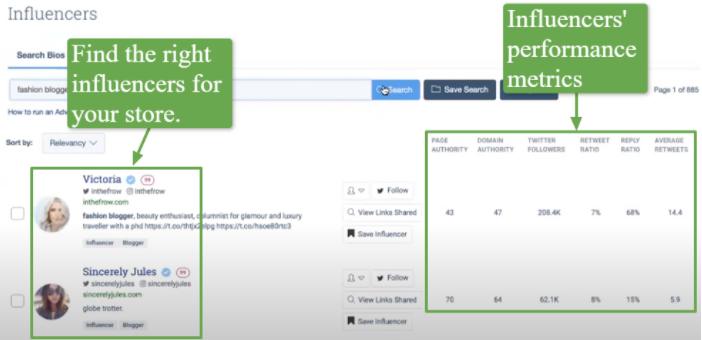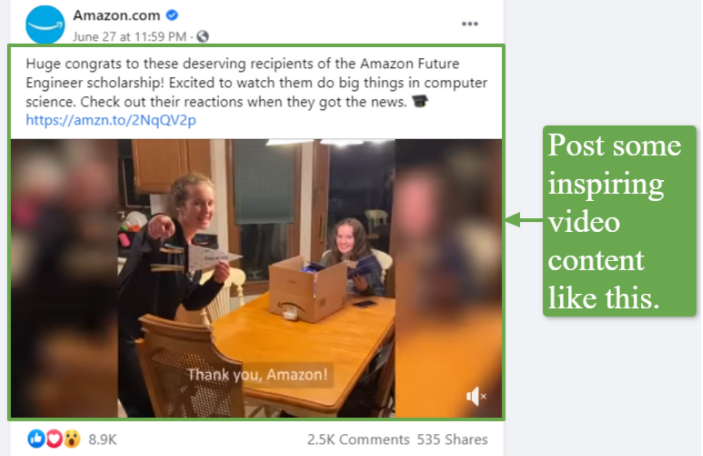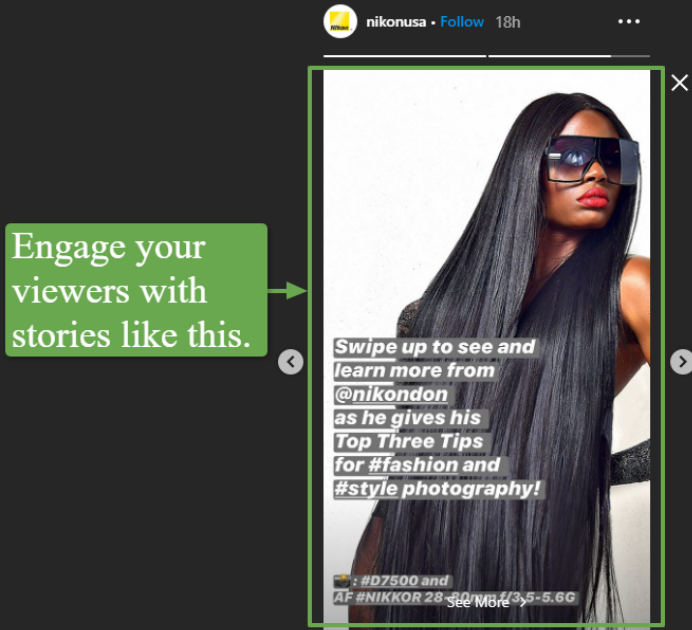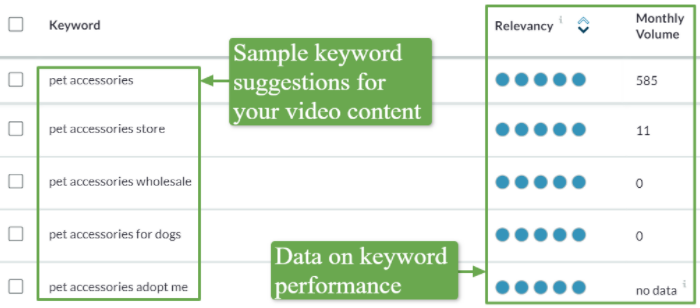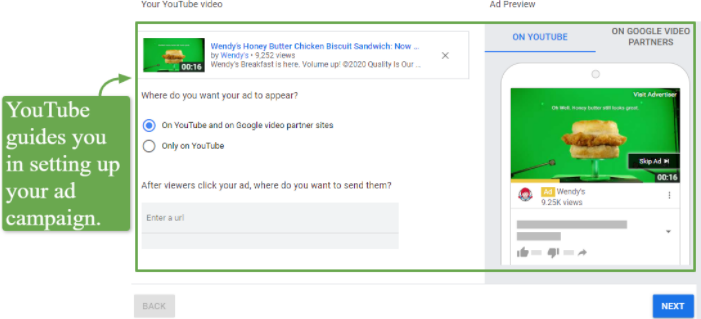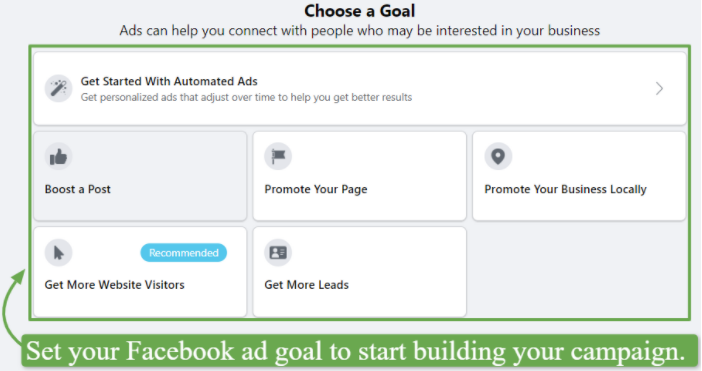Image: Unsplash
In the US, 85% of US online users watch video content every month on any device, with their weekly watch time steadily increasing.
The question is: where can you find these users? How can you reach that many potential customers and subscribers to see and follow your videos?
The answers are right here. Add video to your marketing strategy and promote your ecommerce video content in these seven ways:
1. Work with influencers.
With the amount of effort and resources that goes into creating ecommerce video content, it’s only practical to leverage what and who you can to help create a video marketing strategy that works.
Influencers have thousands of social followers, which is why businesses make influencer marketing an essential part of their ecommerce marketing strategies.
Choose influencers from your niche and have high domain authority (55 and above) to ensure widespread reach of your video content.
Find active, engaged influencers with tools such as Buzzsumo. I entered “fashion blogger” as a sample, and here’s what came out:
Buzzsumo shows top influencers for Twitter, Instagram, and other social platforms, along with their performances for metrics such as page authority, domain authority, and more.
It lets you discover influencers by their level of engagement, size, domain analysis, and even languages.
Once you find your desired influencer, contact them, and discuss how you can collaborate in your video content marketing campaign.
Through influencers, you can expose your brand to a broader audience and increase your potential buyers and conversions.
2. Post on your social platforms.
Consumers love watching videos on their social feeds. It’s their #1 favorite type of content. 88% of marketers also get excellent ROI from their social video marketing efforts.
Supercharge your social media marketing by publishing top-notch video content on your social platforms.
You can go live to showcase your store activities, company culture, production line, etc., unveil your monthly product boxes, interview prominent leaders in your niche, and many more.
Take Amazon, for example. It exhibits on Facebook its Amazon Future Engineer scholars’ thank-you responses after hearing the news:
On an Instagram story, Nikon USA promotes its post about photographer Don Harris’ top three fashion and style photography tips:
Taco Bell also tells the story behind their Doritos Locos Tacos in a fun, animated informational YouTube video:
Publish entertaining, value-laden video content, and you’ll increase your customer engagement and brand patronage.
3. Include it in your webinar presentation.
If you’re holding a webinar, inserting your video content or its selected clips to supplement your presentation, show a preview, or others.
Select webinar platforms or video conferencing software with easy options to upload your material, play from YouTube or other video sharing sites, etc.
If you can’t play the entire video, share the file or link it to your web page or social media channel where they can watch the rest (or rewatch). Invite them also to view your other videos.
4. Write a guest post.
Look for industry-relevant blogs that have stellar SEO ranking, hold the same value as yours, and accept guest posts. Offer to write one for free in exchange for linking back to your site.
Relate your guest post with topics in the site’s blog section to feature your video material seamlessly in your content flow.
If you can’t embed your video in your guest post, you can insert links to your video blog content on your site or social channel instead. Doing this lets you build backlinks that boost your SEO.
Remember also to offer value in your guest post, so you don’t sound overly promotional. Use the right keywords as well.
For instance, if you’re selling organic wellness products, reach out to a health and fitness life coach blogger.
You can share quick-and-easy recipes with organic ingredients, add a video tutorial, and invite your readers to subscribe to your channel, watch your other videos, etc.
5. Create a blog post.
Write blog posts featuring your video content, whether it’s a brand film, vlog, tutorial, or others.
If you don’t have a blog section on your site yet, add a webpage for it, so your visitors know where to find your videos. Embed instead of uploading them to save space and memory.
To increase your videos’ online visibility, optimize your blog pages, and use the right keywords in your post and video tags.
First, find the right keywords through keyword research tools such as Moz. As an example, I typed in “pet accessories,” and it yielded these results:
Moz suggests keywords and shows their relevance (appearance in most sources) and monthly volume (number of Google searches every month).
From the keyword list, pick phrases with high relevancy and considerable monthly volume to help customers find you in the search results quickly.
Add the keywords in your webpage URL, title and headings, meta description, and video alt tags. Sprinkle these phrases around your blog post as well.
Additionally, enable push notifications to update and invite your visitors to check out your new posts and videos.
Push notification marketing is among the best promotional tactics because of their high open and click-through rates, leading to increased sales, conversions, and engagement.
With the right keywords and activated push alerts, your customers can regularly view your blog posts and consume more of your video content.
6. Advertise.
If you have the budget, run paid video ads to widen your customer reach even further.
Google search and social platforms now have easy campaign builders and competitive prices for publishing your video ads.
For example, YouTube guides you step by step in setting up your ad position, target audience, budget, and other aspects.
Facebook also takes you through your ad campaign development, starting with identifying your advertising goals. It then lets you set up your ad placement, format, performance analytics, etc.
Advertise your video ads to reach a more specific target audience, guarantee video content views, and get fast results.
However, paid ads often run for a defined period only, among other conditions. So, it’s best to keep optimizing your organic video content to sustain your performance longer.
7. Email your subscribers.
Include video content whether you’re sending triggered emails, newsletters, or abandoned cart emails. This makes your email marketing campaigns even more punchy and compelling.
Consider these tips when using videos in your emails:
- Mention “video” in your subject line.
- Embed your videos and select a relevant, catchy thumbnail.
- Avoid autoplay.
- Enable single tap video playing.
- Personalize and automate your email delivery based on buyer behavior, information (such as birthdays), and other factors.
- Avoid lengthy videos.
The results you get out of your email marketing campaigns are bound to improve if you use these tips and customize them according to your business’ dynamics.
Ready to promote your ecommerce videos?
Plan your video content creatively and purposefully, use high-quality equipment, and keep your material short to engage numerous viewers.
With the right techniques, keep promoting your video content through these seven channels. Over time, you’ll be satisfied with your efforts’ ROI on your sales, buyer interaction, and more.

